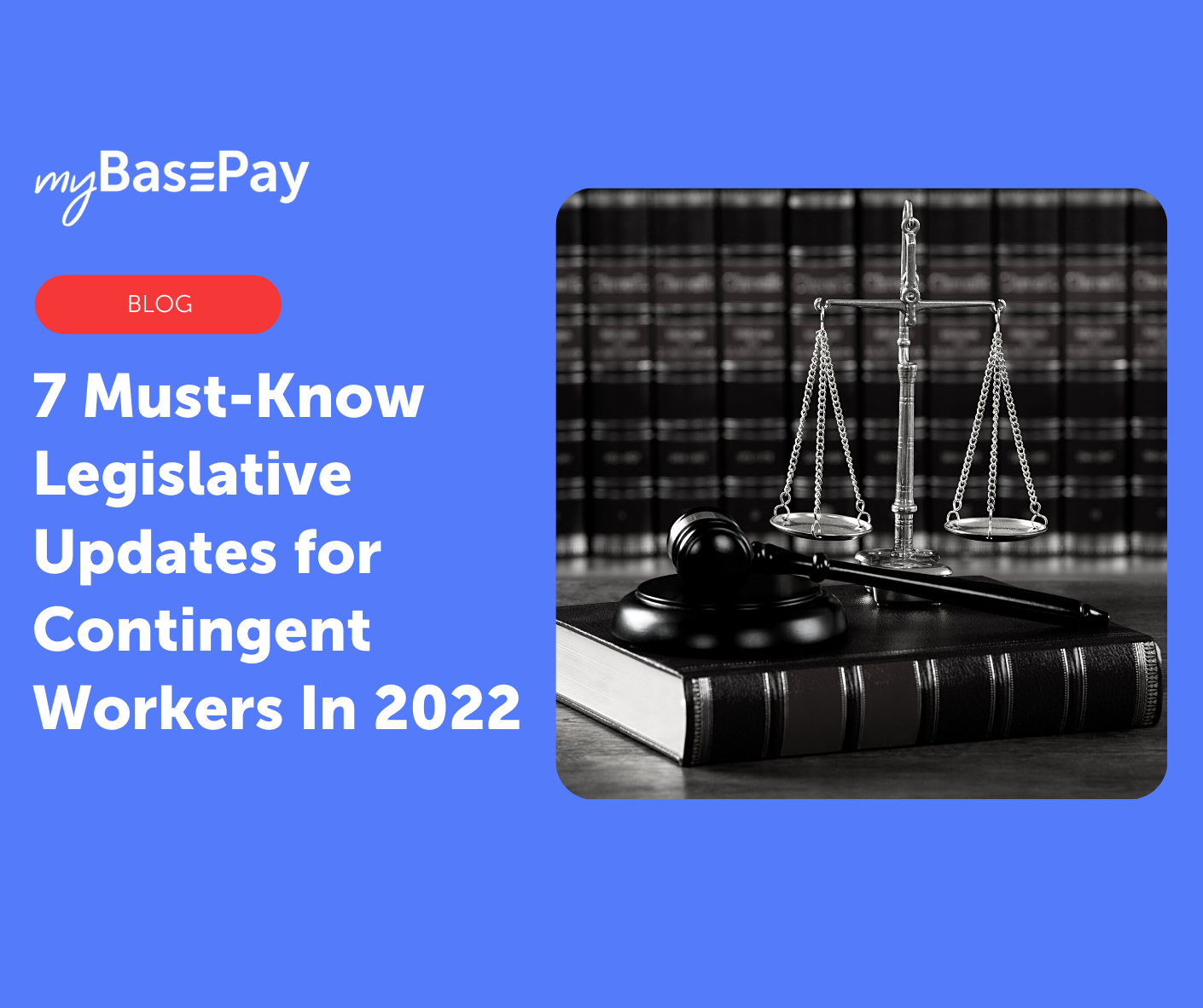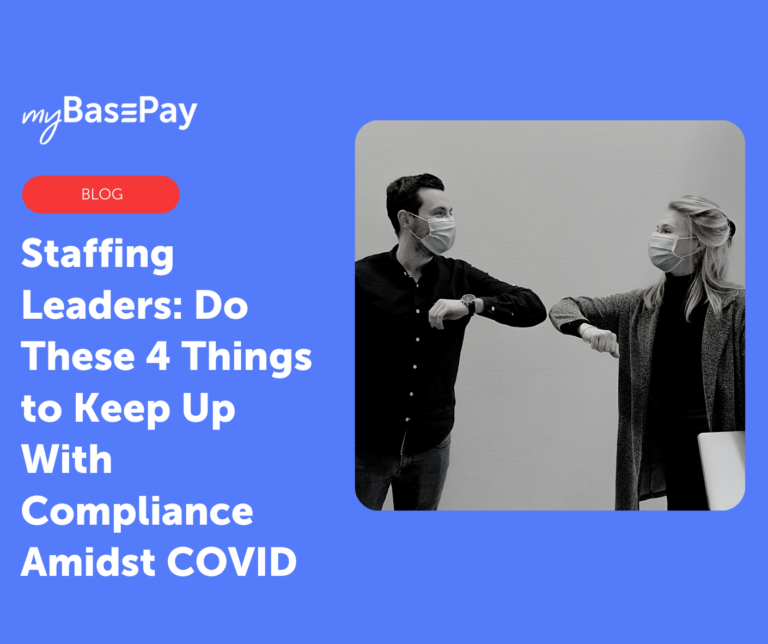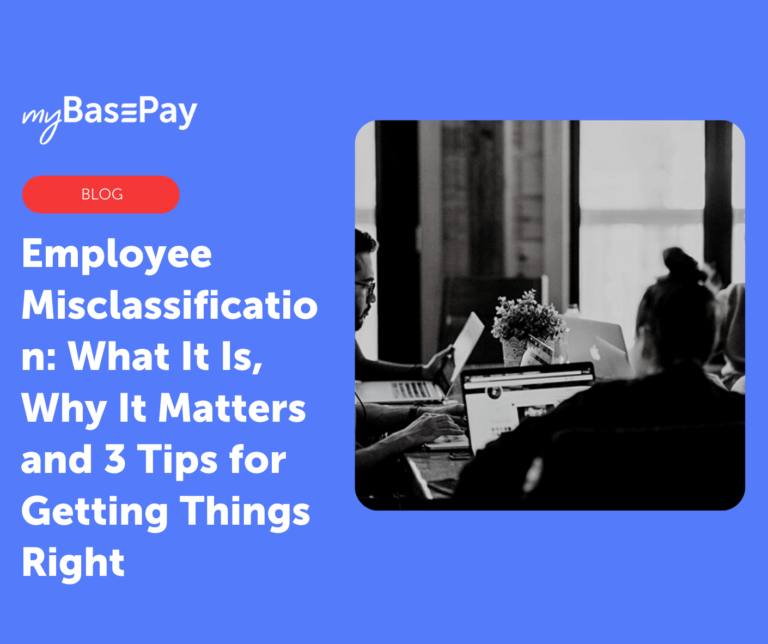7 Must-Know Legislative Updates for Contingent Workers In 2022
The contingent workforce has become an increasingly important part of the modern work world, helping businesses become more agile and flexible than ever before. However, the use of contract workers has also introduced new complexities and liabilities for the businesses that hire them.
This becomes even more apparent in light of legislative updates that are poised to take effect in 2022 — both on the federal level, and within certain states. While these updates are largely intended to protect workers, they also put businesses at increased risk of falling on the wrong side of current regulations.
By understanding the changes that have occurred, as well as those that will soon take place, businesses can continue to use the contingent workforce with confidence.
-
Increase In Minimum Wage for Federal Contractors
While many states have passed legislation to increase their minimum wage, it is only recently that the federal government is starting to get involved in such movements. Executive Order 14026 raises the minimum wage for all federal contractors to $15 per hour. This order went in effect on January 30, and covers both new contracts, and renewals and extensions of existing contracts.
As noted in Staffing Industry Analysts’ Legal Calendar 2022: Americas, however, while this is a very broad executive order, there remain a variety of exceptions that may exempt a worker or specific types of work from this mandate.
-
Changes to Background Checks On Federal Contractors
Another recent change to federal contractors comes from the Fair Chance to Compete for Jobs Act of 2019, which went into effect on December 20, 2021. Under the Fair Chance Act, government contractors are no longer allowed to request disclosure of an applicant’s criminal history.
Both verbal and written criminal background requests are prohibited to ensure that applicants are judged based on job qualifications, rather than having a criminal record present barriers to employment. It should be noted that similar provisions already exist in locations such as California and New York City.
-
Vaccine Mandates
The push to require employees and contractors to be vaccinated against COVID-19 continues to face a winding road in 2022. While the Supreme Court blocked the Biden administration’s vaccine mandate for businesses with over 100 workers, it left the vaccine requirement for healthcare workers in place. As such, healthcare contractors must act swiftly to get vaccinated, including in states that had previously blocked the mandate.
On the other hand, the Supreme Court did not review a vaccine mandate affecting employees of federal contractors and subcontractors. This mandate is currently facing several lawsuits and injunctions that are currently keeping it from being enforced. However, many private entities are requiring that contractors and employees be vaccinated, regardless.
-
Washington D.C.’s Non-Compete Agreement Ban
Washington D.C. (the District of Columbia) is planning to introduce the broadest ban on non-compete agreements that the country has ever seen. The Ban on Non-Compete Agreements Amendment Act is poised to go into effect on April 1, 2022.
This act bans post-employment non-competition agreements (which can prevent a contractor from working for a business’ direct competitor). It also prevents businesses from prohibiting contractors from working for other employers simultaneously. While this may certainly prove advantageous to contractors, the Legal Calendar 2022: Americas report notes that many businesses are still pushing for the act to be amended to protect their interests.
-
Oregon and Illinois’ Non-Compete Restrictions
The states of Oregon and Illinois are also enacting non-compete restrictions that influence how businesses engage with contractors, though they aren’t as strict as Washington D.C.’s. Beginning in 2022, Illinois is making non-compete agreements unenforceable for employees earning less than $75,000 per year, and voiding non-solicitation agreements for employees earning less than $45,000. These thresholds will increase in coming years.
In Oregon, non-compete agreements will only be valid for employees with an income of at least $100,533. In addition, enforceable agreements will only have a maximum limit of one year. As a result, businesses hiring lower earning contractors in either state will need to halt non-compete agreements.
-
Florida’s New Hire Reporting Update
As noted in the Legal Calendar 2022: Americas report, beginning October 1, 2021, the state of Florida implemented new obligations for reporting services provided by independent contractors. If a business in Florida pays an independent contractor $600 or more per year, that business is required to submit new hire information to the Florida Department of Revenue.
This report must be submitted within 20 days of when the business entered into a contract with the independent contractor, or when it provided its first payment to the contractor. Because of this, Florida businesses must be mindful of whether they are likely to pay a newly hired contractor in excess of $600 right from the start.
-
Illinois’ Pay Data Reporting
The state of Illinois has introduced several recent amendments to its Equal Pay Act. This act requires that employers pay equal wages to men and women who provide the same or “substantially similar” services. A similar rule applies regarding how much African American employees are paid in comparison to non-African American workers.
In addition, businesses with 100 or more employees residing in the state of Illinois will be required to apply for an Equal Pay Registration Certificate beginning in late March 2022. To obtain the certificate, the business must provide compensation data for its employees to certify its compliance with both state and federal equal pay laws.
Stay On Top of Legislative Changes With a Quality EOR
For companies that do business in multiple states or work with contractors from different parts of the country, keeping track of all relevant legislative issues is of the utmost importance. However, with so many different things to keep track of, it can be easy for key legislative changes that would affect your company to be overlooked.
This is what makes working with an employer of record (EOR) such as myBasePay so important. With a full suite of back office solutions, myBasePay ensures that you maintain financial and regulatory compliance, no matter what legislative changes might occur. You can have peace of mind as you work with top talent.
Rachel Stonestreet
Director of Operations & Compliance
myBasePay






